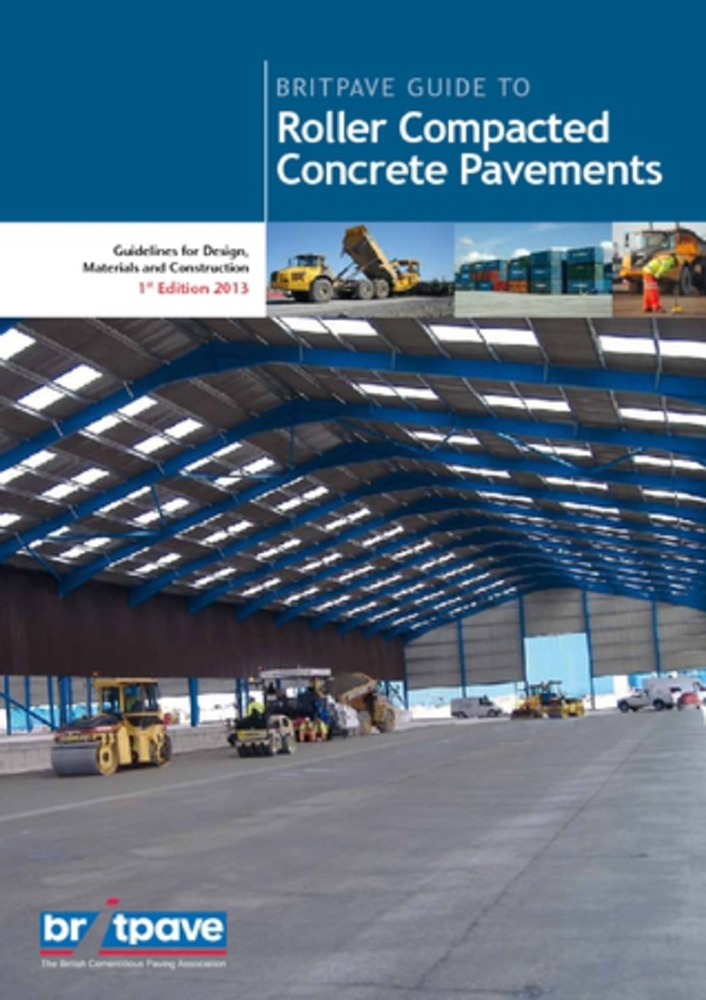Industry Initiative: Roads
Roller Compacted Concrete Included in DMRB
Roller compacted concrete (RCC) takes its name from the construction method used – it is placed by modified asphalt paving equipment, but it is stiff enough to be compacted by vibratory rollers.
RCC requires no formwork or reinforcement, the surface texture is smooth and suitable for parking, materials handling and road pavements where the traffic speeds are relatively low (< 60km/hour). For higher speed highway and airfield pavements, it is necessary to provide the RCC with an asphalt surface in order to meet skid resistance and surface regularity requirements. Alternatively, the RCC surface may be treated by grooving and grinding to gain the required surface parameters.
RCC has significant potential for the UK road network and is increasingly being considered for truck lanes and motorway widening projects. This potential could be realised following the completion of a joint Highways England/Britpave/MPA project to include RCC in the Design Manual for Roads and Bridges (DMRB) HD26 and in the updates in the Specification for Highway Works and Notes for Guidance Series 1000. The inclusion of RCC is a significant step for the concrete industry in assisting Highways England to achieve best value for their highways programme by forwarding cost-efficient and effective pavement solutions.
RCC combines the strength, long-term performance and minimal maintenance of conventional pavement quality concrete (PQC) with the economy and simplicity of asphalt. For roads, RCC offers further advantages that include minimal rutting, it can span localised soft subgrades and will not deform under heavy concentrated loads. In addition, at end-of-life, it can be crushed and recycled for a new pavement.
The economy of RCC is in its simple application. Large-capacity mixers continually blend the RCC which is transported to site and discharged into an asphalt paver. This places the materials in layers up to 250mm thick and 13m wide. Compaction starts immediately after placement and continues until the pavement meets density requirements. Curing ensures a strong and durable pavement. Where appearance is important, joints can be saw-cut into the RCC to control crack location. If economy outweighs appearance, then the RCC can be allowed to crack naturally.
Aiming to forward the benefits of RCC, the ‘Britpave Guide to Roller Compacted Concretes’, describes the benefits, properties and applications of RCC, provides recommendations on mix design and materials selection, and discusses applicable design methods, construction methodology and techniques. Quality control recommendations are given in the context of standard UK tests and procedures. ‘Britpave Guide to Roller Compacted Concrete’ is available as a free download from the publications section.


